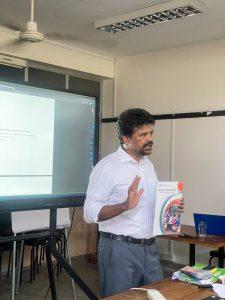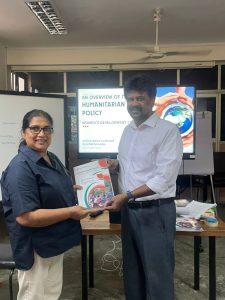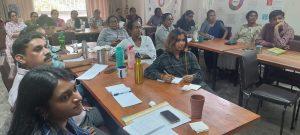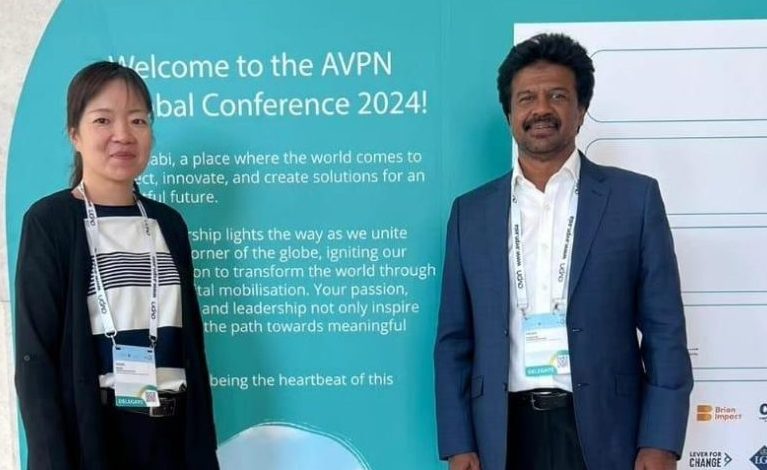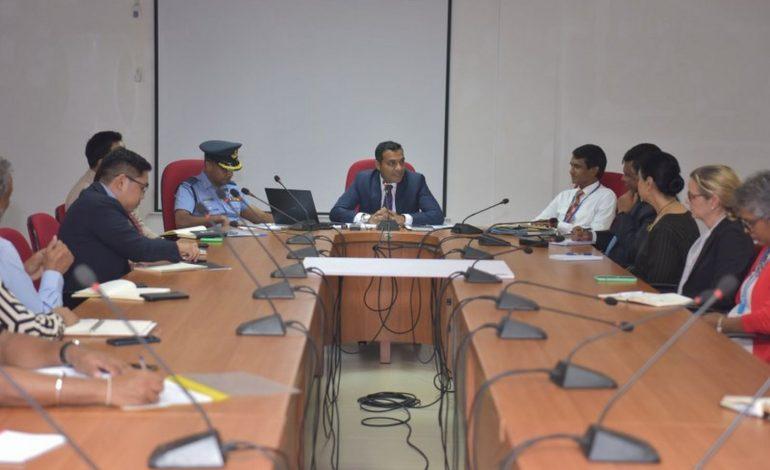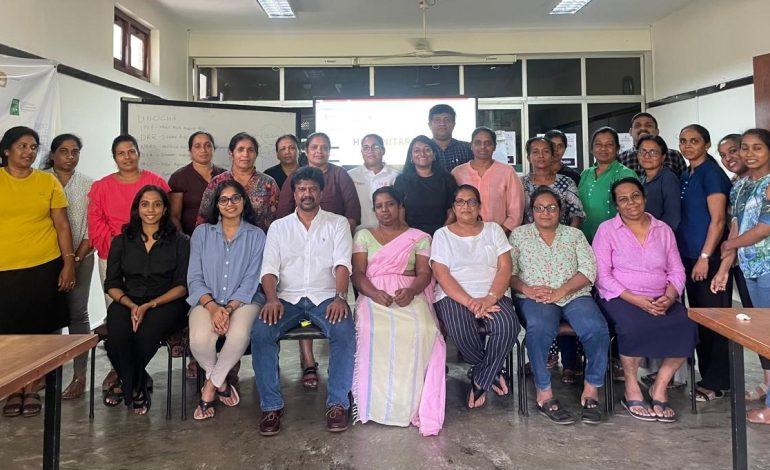
Elevating Professionalism in Humanitarian Response.
On May 18th, 2024, a crucial meeting focused on strengthening humanitarian policy and disaster management practices was held, particularly with the Women’s Development Centre (WDC). Community-Based Organizations (CBOs) like WDC play a vital role in assisting vulnerable populations during crises. Acknowledging this, the session emphasized the necessity of tailored humanitarian policies and integrating Disaster Risk Reduction (DRR) strategies.
WDC, dedicated to empowering women and children in Sri Lanka, has spearheaded various initiatives encompassing community development, socio-economic justice, and crisis intervention. A-PAD SL’s collaboration with WDC illustrates our commitment to educating communities through CBOs. The drafted humanitarian policy aims to solidify WDC’s dedication to vulnerable communities, focusing on disaster risk management, thus expanding A-PAD’s societal responsibilities.
Led by Mr. Firzan Hashim, Country Director of A-PAD SL, the session commenced with an overview of A-PAD Sri Lanka’s mission, stressing the need for a tailored humanitarian policy at WDC. Discussions explored integrating DRR strategies into local CBOs, emphasizing flexible and inclusive approaches, particularly child-centered and gender-sensitive methods. Participants discussed practical DRR principles, highlighting prevention, mitigation, and preparedness. The meeting aligned with international and national policies such as the Sendai Framework for Disaster Risk Reduction and the Sustainable Development Goals (SDGs). It concluded with a focus on enhancing funding, donor confidence, and accountability through documenting best practices for sustainable humanitarian efforts.
Furthermore, Ms. Anoja Seneviratne, Director of Mitigation Research and Development at DMC, conducted a session on “Protection and Gender Mainstreaming in Humanitarian Context Based on Identified Needs.” This was a pivotal exploration into the nuanced roles of gender and sex in disaster response. Through her insights, participants delved into understanding the intricacies of gender and sex, recognizing the socially constructed nature of gender and its profound impact on disaster experiences. Through engaging case studies and discussions on empowerment, legal action, and the integration of gender considerations into local and global systems, the session underscored the necessity of a comprehensive and gender-sensitive approach in disaster management.
Thus, overall, this workshop underscores A-PAD SL’s collective commitment to building resilience and fostering preparedness. Guided by our shared vision, we are confident in our ability to create a more secure and prosperous future for all.
